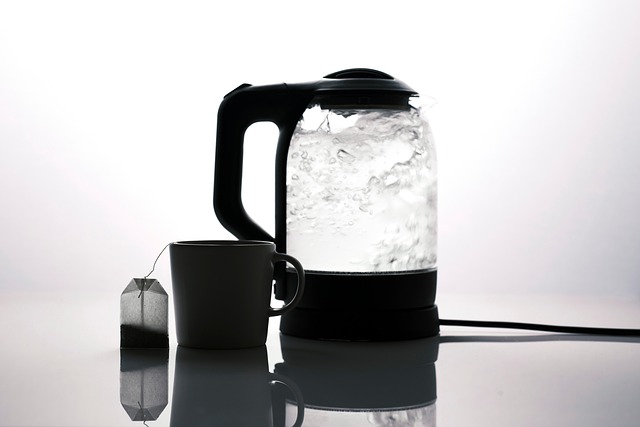Regular water heater maintenance is essential for both residential and commercial properties, preventing issues like sediment buildup, leakage, and enhancing efficiency. This involves performing visual inspections, cleaning, checking pressure relief valves, monitoring energy usage, and flushing the tank twice a year. Such simple tasks extend the tank's lifespan, prevent costly repairs, promote safety, and optimize performance by addressing hard water effects and promptly fixing leaks.
Water heaters are essential in our daily lives, but they often go unnoticed until problems arise. From sediment buildup to leaks, common water heater issues can lead to costly repairs or even replacements. Understanding these issues and implementing regular maintenance practices can prevent such headaches. This article delves into the most frequent water heater problems, offering practical solutions for effective prevention, addressing leaks, and managing sediment buildup. Discover how simple routine care can keep your water heater running smoothly.
- Understanding Common Water Heater Issues
- Regular Maintenance Practices for Prevention
- Addressing Leaks and Sediment Buildup
Understanding Common Water Heater Issues

Water heater problems are common, affecting both residential and commercial properties. Understanding these issues is the first step in efficient water heater maintenance. One of the most frequent issues is sediment buildup, which occurs when minerals and metal particles accumulate at the bottom of the tank. Over time, this can reduce the heater’s efficiency, leading to increased energy consumption and even potential damage. Another widespread problem is leakages, often stemming from worn-out seals or valves. These leaks not only cause water waste but can also lead to significant structural damage if left unaddressed.
Regular water heater maintenance is key to preventing these issues. This includes periodic flushing to remove sediment buildup and ensure optimal performance. Additionally, checking and replacing old or damaged parts, such as O-rings and pressure relief valves, can significantly prolong the life of your water heater and prevent costly repairs. By implementing simple preventive measures and staying vigilant about potential problems, homeowners and business owners alike can enjoy efficient heating systems for years to come.
Regular Maintenance Practices for Prevention

Regular maintenance is key in preventing common water heater problems. It’s recommended to perform a few simple checks and tasks at least twice a year. Start by inspecting the water heater for any signs of damage, corrosion, or leaks. Ensure the tank is clean and free from sediment buildup, which can impede heating efficiency and even lead to premature failure. Regular flushing, typically done every 3-6 months, helps remove these deposits. Additionally, check the pressure relief valve for proper functioning; a faulty valve might cause excessive pressure, leading to potential damage or leaks. Keep an eye on energy usage; unusual spikes could indicate a problem requiring professional attention. Timely maintenance not only extends the water heater’s lifespan but also ensures optimal performance and safety.
Addressing Leaks and Sediment Buildup

Addressing leaks and sediment buildup is crucial for maintaining your water heater’s efficiency and longevity. Regular water heater maintenance, including flushing and inspections, can prevent these common issues. Sediment accumulation, often caused by hard water, can lead to reduced heating capacity and even damage over time. By periodically flushing the heater, you remove mineral deposits and debris, ensuring optimal performance.
Leaks, whether from connections or internal parts, are another significant concern. Promptly identifying and repairing leaks is essential to avoid water waste and potential structural damage. Regular checks and maintenance can help catch these problems early, making repairs more manageable and cost-effective. Implementing preventive measures like insulated lines and high-quality components further contributes to efficient water heater maintenance.
Water heater maintenance is key to preventing common issues like leaks and sediment buildup. By understanding these problems and implementing regular upkeep, you can extend the lifespan of your water heater and avoid costly repairs. Remember, a well-maintained water heater ensures a steady supply of hot water while preserving energy efficiency and safety in your home.
